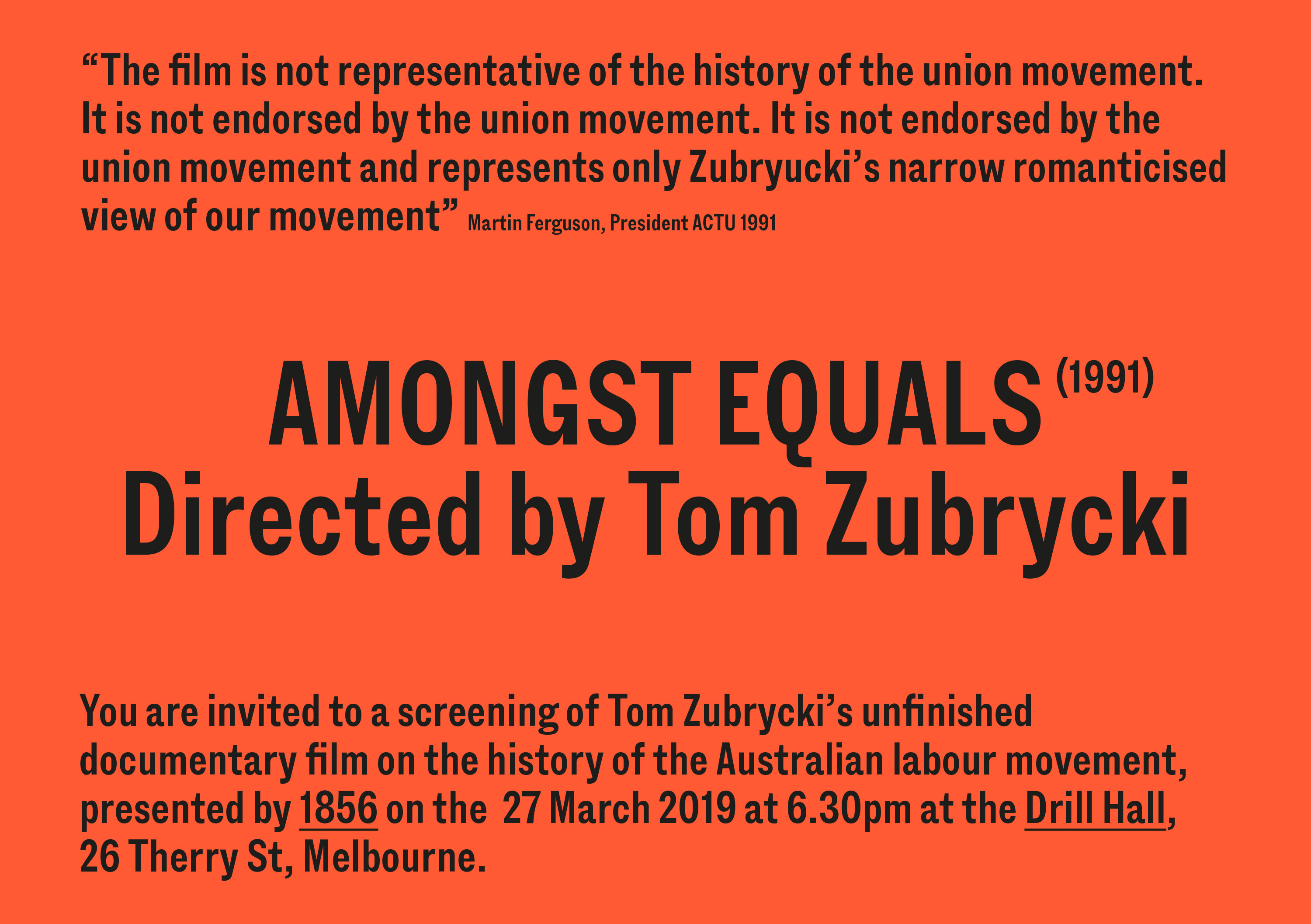Amongst Equals, 1991
Directed by Tom Zubrycki
Tom Zubrycki's unfinished documentary film on the history of the Australian labour movement, from the 1850's up until the bicentenary of 1988. Originally sponsored by the Australian Council for Trade Unions, produced by Film Australia, and funded by the Australian Bicentennial Authority, the film was effectively censored when the ACTU rejected the film's representation of union history.

- Screenings:
6.30pm 27 March, 2019
The Drill Hall, 26 Therry Street, Melbourne
Organised with Imogen Beynon
FREE3 October, 2018
MELBOURNE CINEMATHEQUE
Australian Centre for the Moving Image (ACMI)
Organised by John Hughes & Adrian Danks
with Melbourne Cinematheque
(Please note, entry requires a Cinematheque membership)
On the occasion of these screenings, 1856 publishes a pamphlet with an excerpt from John Hughes' manuscript for his essay “Zubrycki’s Point: Amongst Equals, utilitarian film in the Australian labour movement”, on the controversy surrounding the production of Amongst Equals.
Among the many cultural projects sponsored for the Australian Bicentenary, the production of Amongst Equals was directly implicated in the writing of officiated history. Surrounding the making of this film were a series of events that led the ACTU to withdraw its support for the film and rescind its relationship with Zubrycki. At the bottom of this was Amongst Equals’ acknowledgement of the historical defeats of the labour movement, and the film's emphasis on struggle rather than consensus in advancing workers’ interests, which effectively highlighted an ideological division in the union movement that was perhaps at its height in the 1980s. Ultimately, the ACTU’s final position on the film did not reflect the wishes of many unions and trades hall councils across Australia, mirroring the shift in power contemporaneous with the making of the film, from the activism of union members on a local level, to the officialdom of the ACTU and the Australian Labor Party.
What was at stake for the labour movement with Amongst Equals was the politics of its own history, a politics that is as broad as the political positions operative in the Australian union movement up until this day. The representation of this history came to be the cause of dispute over the film and its eventual censorship by the ACTU.
Today the history of Amongst Equals gives cause to questions latent in all projects seeking to represent history: namely, who writes history and signs off how it is represented; how adequate is any representation of social experience; and in the case of a film such as this—or any work of art with a utilitarian or instrumentalised purpose—who determines the meaning of a work and its story?
